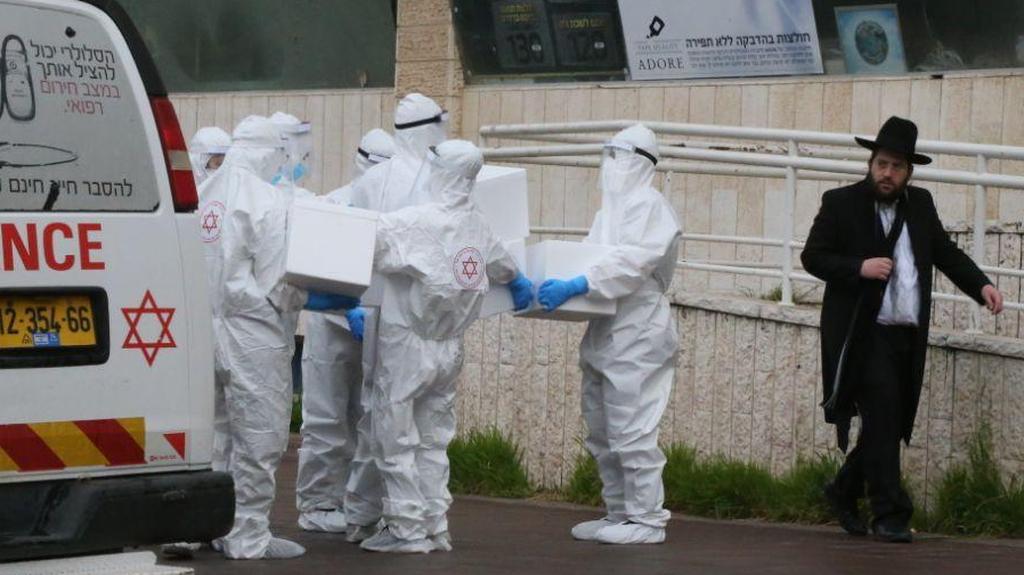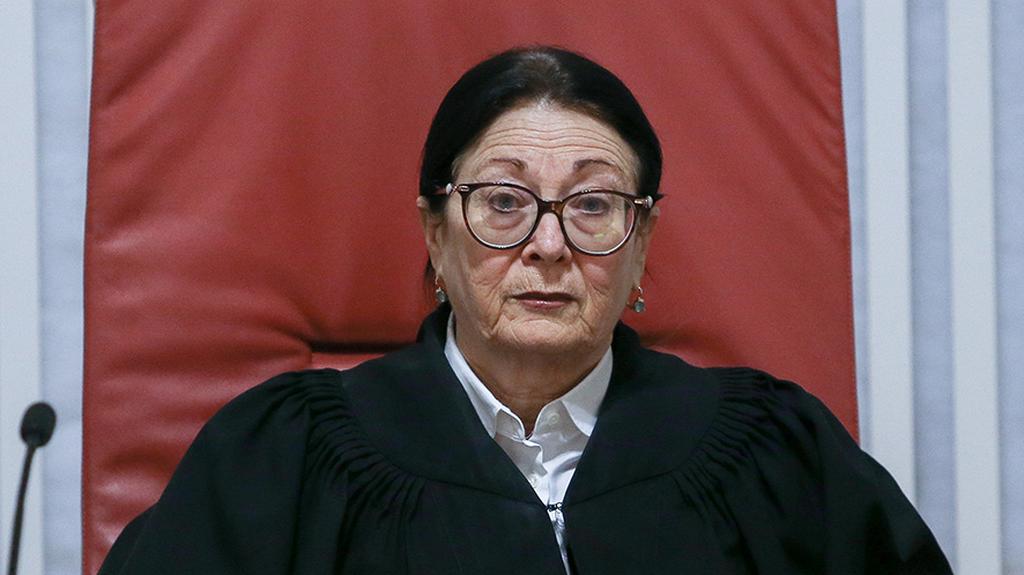The Knesset's Foreign Affairs and Defense Committee on Thursday approved a five-day extension to the use of Shin Bet surveillance to track the movements of coronavirus patients in order to stem the spread of the disease.
The measure will continue to be used until midnight Tuesday, in line with a High Court ruling that the use of counter-terror measures against civilians must be covered by legislation.
3 View gallery


MK Gabi Ashkenazi chairs a meeting of the Knesset Foreign Affairs and Defense Committee
(Photo: Shmulik Grossman)
The controversial Shin Bet process involves tracking the cell phone activity of confirmed coronavirus cases in order to locate anyone who had been in their immediate vicinity and instruct them to go into quarantine.
Critics say that it is an infringement of civil liberties and expressed concern that the method could be misused in the future and on Sunday the High Court said legislators must pass a law permitting the use of the measure.
"If the government decides that it will not advance the legislation then the extension will expire," said the committee's chairman, Blue & White MK Gabi Ashkenazi. “If it does decide to continue with the process, it can come to us on Tuesday and we will look into an extension.”
Ashkenazi also called for an increase in the rate of epidemiological investigations and tests, in order to facilitate the economy's reopening.
“We understand there is a risk, but we will need have a daily routine alongside the coronavirus for the next year,” he said.
“This is why it is important to boost the rate at which epidemiological investigations and tests are conducted, together with investigating other technological alternatives.”
3 View gallery


Magen David Adom personnel prepare to carry out coronavirus tests in Bnei Brak
(Photo: Moti Kimchi)
Prof. Sigal Sadetsky, the head of Public Health Services at the Health Ministry, warned about the implications of stopping the surveillance.
“It is clear that without surveillance we will miss many patients and many people who need to be in quarantine," she said. "It is clear that we need this in order to reopen the economy.”
Sadetsky said that successful containment of the highly infectious disease hinged on the ability to trace patients and anyone with whom they had been in close contact.
“We fluctuate between 170-184 new infections daily, but we need to see the bigger picture," she said.
“As we reopen the economy, the number of cases will rise and then we truly will need track each new patient and those who they came into contact with.”
Sunday's High Court ruling, penned by Chief Justice Esther Hayut, said: “We must keep watch so that the unusual events with which we are now dealing do not lead us down a slippery slope where such unusual invasive measures are used without justification.”
The ruling added: "If the country wishes to employ the measures provided by the Shin Bet, it must first act to legislate such a move.
"As the legislative proceeding is initiated, the [Shin Bet] certification period can be extended by no more than a few weeks, In order to allow the completion of this procedure.”


